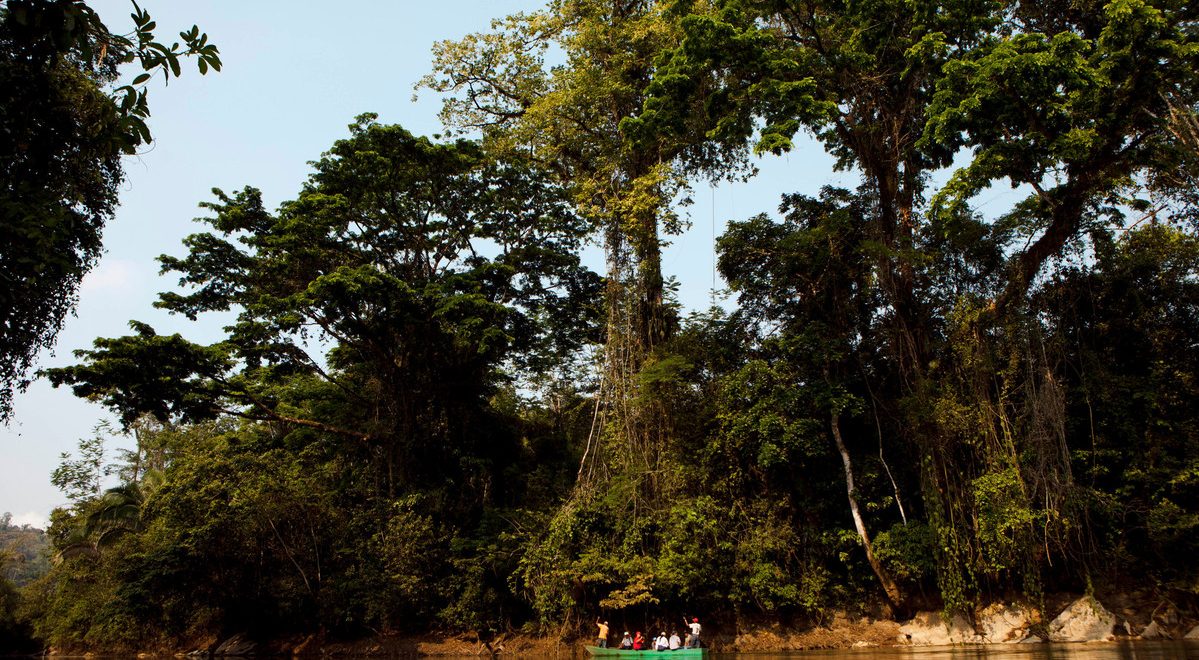Guatemalan indigenous human rights activist Rigoberto Lima Choc was murdered last Friday by two gunmen riding a motorcycle. Media outlets have noted the likely connection between Lima Choc’s assassination and his leadership in community demands that the palm oil company REPSA be held responsible for the pesticide contamination of La Pasión River in northern Guatemala.
The ecological disaster caused a massive fish kill covering nearly 50 miles of river, threatening the right to water and the livelihoods of dozens of indigenous communities. Lima Choc had been among the first community leaders to call for justice in the case, and he was gunned down in front of the office of a judge who just the day before ordered the suspension of operations at the REPSA palm oil plantation in order to investigate the poisoning of the river.
The palm oil company REPSA has also been accused of labor conditions which risk violating human rights. REPSA is reported to have acquired massive amounts of land cheaply from indigenous households who were suffering from economic distress and threats of violence, after being resettled without adequate public investment and community land rights protections following Guatemala’s Civil War .
ActionAid Guatemala issued the following statement on Saturday:
ActionAid Guatemala categorically condemns the violent tragedy that occurred yesterday in the municipality of Sayaxché, Petén Department. The death of Professor Rigoberto Lima Choc requires that the relevant authorities immediate investigate and identify those responsible, and bring them to justice.
On the same day that Professor Lima Choc was killed, employees of REPSA kidnapped three community leaders from the ActionAid partner organization CONDEG (the National Council of Displaced Peoples of Guatemala). These activists had also joined the effort to hold REPSA accountable for the La Pasión River contamination. Prior to the kidnapping, the company had told employees that their pay would be withheld during the temporary closure. The community leaders were held hostage for over ten hours before being released when Judge Karla Hernández agreed that she would reconsider her order that temporarily halted REPSA’s operations.
President of the Union of Human Rights Defenders of Guatemala, Claudia Samayoa, told the Guatemalan press that REPSA is hoping to use violence to reverse the decision. But the company cannot terminate its obligations to workers because it has not closed its operations and declared bankruptcy.
The expansion of palm oil plantations onto community lands and forests is not just happening in Guatemala, but is already underway in many countries around the world. While it’s true that the largest direct buyers of Guatemalan palm oil are international processed food companies with manufacturing operations in Mexico, palm oil plantations in Guatemala are rapidly expanding to meet increasing global demand for vegetable oils, due in part to US, European, and other national mandates for the production of biofuels.
Supporters of biofuels claim that they are a green solution to our energy needs. In reality, they are driving the expansion of large scale industrial agricultural plantations, and displacing small-scale food producers throughout the World.
We’ll be letting you know how you can show your support for human rights defenders in Guatemala, and call for an end to palm oil land grabs. Watch this space for more info.



